- Driving Forces Behind Rising Iranian-Russian Alliance
- With West Doubtful of Him, Can Al-Sharaa End Syria Chaotic Situation?
- Rising Repression and Denial of Medical Care in Occupation Prisons
- Araghchi: Iran and Russia Hold Aligned Positions on Global Affairs
- Araghchi Cautions the US Against Repeating Ineffective Pressure Tactics
- Maduro Hails Iran as Model for Upholding International Law
- Two Killed in Israeli Airstrikes on Vehicles in Southern Lebanon Amid Ceasefire Breach
- With Turkey-PKK Peace Faltering, Northern Syria Conflict Growing More Likely
- Armenia Growing Hasty about TRIPP Corridor
- US–Qatar F 35 Negotiations Fuel Rising Israeli Anxiety
Editor's Choice

Is Yemen on the Verge of Split? The country is sinking in chaos as conflicting forces in the south are going separate ways and Yemenis are less involved in the fate of the south.
Beirut Assassination: Tel Aviv’s Dangerous Game and Mystery of Hezbollah Response Israel is seeking to take Hezbollah into a new confrontation, but the latter has its own calculations and game.
What’s Driven Public Trust in Resistance Factions in Iraq Vote? The Iraqis find effective forces in the resistance groups that do not restrict themselves to military sphere and have worked to stabilize national economy.
Gaza Disability Crisis: A Non-healing Wound Thousands of Gazans have suffered organ amputations, making it hard for them to engage in daily life activities.
Two Blasts Signal Deadly Game in South Asia The Pakistan and India blasts suggest that a new wave of instability is in the making, raising concerns about broader insecurity.
News

Rising Repression and Denial of Medical Care in Occupation Prisons
Palestinian prisoners are experiencing heightened violence, medical neglect, and life-threatening conditions in Israeli jailsAraghchi: Iran and Russia Hold Aligned Positions on Global Affairs Iranian Foreign Minister Abbas Araghchi and Russian Foreign Minister Sergey Lavrov praised the exceptional level of coordination between Tehran and Moscow
Araghchi Cautions the US Against Repeating Ineffective Pressure Tactics Iran’s foreign minister called on the United States to respect Iran’s people and their political system
Maduro Hails Iran as Model for Upholding International Law Venezuelan President Nicolás Maduro has praised Iran as a global exemplar in defending international law
Two Killed in Israeli Airstrikes on Vehicles in Southern Lebanon Amid Ceasefire Breach Lebanon’s Health Ministry reports that two people were killed and five others wounded in separate Israeli airstrikes
US–Qatar F 35 Negotiations Fuel Rising Israeli Anxiety A review of the US–Qatar F 35 talks
Iran, Russia to Fast-Track North–South Transport Corridor Following Tehran Discussions Iran and Russia emphasized the importance of fast-tracking the implementation of the strategic North–South Corridor
Terrorist Attack at Checkpoint in Southeast Iran Leaves Three Policemen Martyred At least three Iranian police officers lost their lives in a firefight with unidentified attackers at a security checkpoint in Kerman
Iran Welcomes Chile’s Presidential Election Results, Signals Willingness to Deepen Relations The Iranian Foreign Ministry’s spokesperson congratulated Chile on the successful conduct of its presidential election
Three Vessels Struck by US Forces in The Eastern Pacific; Eight Fatalities Reported Eight killed as US military targets three suspected drug-smuggling vessels in eastern Pacific operation ordered by Secretary Pete Hegseth
Senior Commander Praises Continuous Advancements in Iran’s Air Defense Capabilities The Chief of Staff of the Iranian Armed Forces emphasized the ongoing and consistent improvement of Iran’s air defense capabilities
Iran Introduces New Nuclear Medicine Products Iran’s NSTRI has revealed three domestically developed products for diagnosing and treating diseases using nuclear medicine
US Military Aircraft Nearly Collides with Civilian Plane Near Venezuela A US military refueling plane narrowly avoided a collision with a civilian passenger aircraft off Venezuela’s coast
Russia Says It Intercepted 130 Ukrainian Drones Overnight Russia’s Defense Ministry says air defense units intercepted 130 fixed-wing Ukrainian drones overnight across multiple regions and over the Caspian Sea
Human Rights Watch Says Israel Is Blocking Reconstruction in Southern Lebanon Human Rights Watch says Israeli attacks on reconstruction machinery and civilian factories in southern Lebanon after the ceasefire breach the laws of war and amount to war crimes
Mass Shooting at Jewish Gathering in Australia Leaves 12 Dead and Dozens Injured Two gunmen opened fire at a Jewish gathering in Sydney on Sunday, killing at least 12 and injuring dozens more
Iran FM Araghchi Meets Pakistan’s Special Representative in Tehran Mohammad Sadiq, Pakistan’s special envoy on Afghanistan, held talks with Iran’s Foreign Minister Abbas Araghchi in Tehran on Sunday
Iran Opposes External Interference, Calls for Regional Cooperation on Afghanistan Iranian Foreign Minister Abbas Araghchi said externally imposed solutions and foreign decision-making cannot bring lasting stability to Afghanistan
Diplomatic Discussions Underway Concerning Iran’s Nuclear Program IAEA Director General Rafael Grossi said discussions to address Iran’s nuclear program are continuing
Palestinian Teenager Martyred in Israeli Military Raid in Northern West Bank A Palestinian teenager was killed after being shot by Israeli forces during an overnight operation in a town in the northern Israeli-occupied West Bank
Most Viewed
Driving Forces Behind Rising Iranian-Russian Alliance
What’s Pezeshkian’s Central Asia Visit Yielded?
US Tanker Seizure Brings War Clouds Lower on the Caribbean
Is Yemen on the Verge of Split?
Israeli Forces Launch Fresh Incursion into Rural Quneitra, Syria
US Military Aircraft Nearly Collides with Civilian Plane Near Venezuela
Khatibzadeh: Iran-China Relations Stand Strong and Historical
Iran, Russia to Fast-Track North–South Transport Corridor Following Tehran Discussions
Mass Shooting at Jewish Gathering in Australia Leaves 12 Dead and Dozens Injured
False Flag Attack: Why Should Mossad Be Blamed for Fatal Sydney Shooting?
Maduro Hails Iran as Model for Upholding International Law
Russia Says It Intercepted 130 Ukrainian Drones Overnight
Araghchi Cautions the US Against Repeating Ineffective Pressure Tactics
Southern Lebanon Hit by Israeli Airstrikes as Ceasefire Violations Persist
Syria a Year after al-Assad Fall
Tehran and Riyadh Going Beyond De-escalation, Now Seeking Common Cooperation Grounds
With Multi-billion Plans Collapsing, Saudi Megaprojets Prove a Failure Story
Mystery of Gaza ’Peace Council’: An Ambiguous Mission with Dangerous Objectives
Israel Conducts New Attacks on Southern and Eastern Lebanon
Iran Accuses US and EU3 of Undermining Cairo Agreement with IAEA
Iranian Military Signals Readiness for Strong Action Against Threats Worldwide
Iran Intercepts Foreign Ship Transporting Smuggled Fuel
FIFA World Cup Hostage to Trump’s Bullying
Beyond Gaza: From the West Bank to Syria and Lebanon
How Are Lebanese Govt.’s Incorrect Policies Emboldening Israeli Attacks on Lebanon?
Trump Confirms Phone Call with Maduro Amid Rising Tensions
Israeli Airstrike Leaves 15 Dead at A Palestinian Refugee Camp in Southern Lebanon
Netanyahu Drags War into Cabinet to Save Power
Israeli Drone Strike in Gaza Kills Palestinian Man Despite Ceasefire
Araghchi: Iran Open to Dialogue with Lebanon, Denies Involvement in Its Internal Matters
Larijani Calls for Strategic, Economic Expansion with Pakistan
In Focus

Ansarullah
A Zaidi Shiite movement operating in Yemen. It seeks to establish a democratic government in Yemen.
Shiite
represents the second largest denomination of Islam. Shiites believe Ali (peace be upon him) to be prophet"s successor in the Caliphate.
Resistance
Axis of Resistances refers to countries and movements with common political goal, i.e., resisting against Zionist regime, America and other western powers. Iran, Syria, Hezbollah in Lebanon, and Hamas in Palestine are considered as the Axis of Resistance.
Persian Gulf Cooperation Council
A regional political u n i o n consisting of Arab states of the Persian Gulf, except for Iraq.
Taliban
Taliban is a Sunni fundamentalist movement in Afghanistan. It was founded by Mohammed Omar in 1994.
Wahhabism & Extremism
Wahhabism is an extremist pseudo-Sunni movement, which labels non-Wahhabi Muslims as apostates thus paving the way for their bloodshed.
Kurds
Kurds are an ethnic group in the Middle East, mostly inhabiting a region, which spans adjacent parts of Iran, Iraq, Syria, and Turkey. They are an Iranian people and speak the Kurdish languages, which form a subgroup of the Northwestern Iranian branch of Iranian languages.
NATO
The North Atlantic Treaty Organization is an intergovernmental military alliance based on the North Atlantic Treaty which was signed on 4 April 1949.
Islamic Awakening
Refers to a revival of the Islam throughout the world, that began in 1979 by Iranian Revolution that established an Islamic republic.
Al-Qaeda
A militant Sunni organization founded by Osama bin Laden at some point between 1988 and 1989
New node

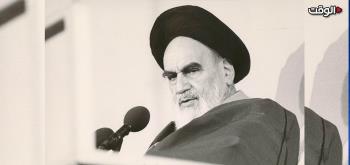
Analysis
In Imam Khomeini’s Discourse, Palestinian Cause Is a Test of Right and Wrong
Thursday 5 June 2025
Saddam Hussein of Iraq imposed on Iran in 1980, the US and its allies tried to nip the Islamic Revolution in bud. However, Imam Khomeini, with his astute and sagacious leadership, not only did not allow the war to isolate Iran, but also turned it into an opportunity for Islamic awakening.
During th ...
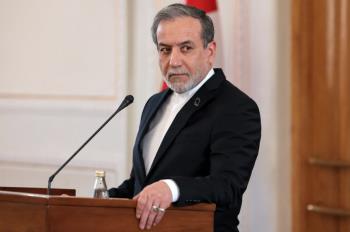
News
Foreign Minister Araghchi: Iran Firmly Supports a World Without Weapons of Mass Destruction
Monday 30 June 2025
،
Saddam Hussein for launching the first chemical assault on a civilian city in 1987. He highlighted the suffering endured by the people of Sardasht, describing it as a tragic symbol of chemical warfare and a dark chapter in Iran’s history, made worse by the complicity or silence of Western powe ...

Analysis
Shadow of Collapse on Iraq’s Kurdistan Region
Wednesday 27 August 2025
،
Saddam Hussein’s regime to help him push back PUK forces and reclaim Erbil. The clashes dragged on until September 1998, when the two sides, under US mediation and pressure, finally signed a peace deal.
That agreement has long since lost its teeth as a mechanism for resolving disputes. The po ...
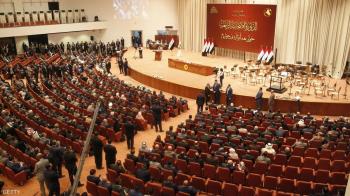
Report
Iraq’s Election Atmosphere Overshadowed by Massive Candidate Disqualifications
Wednesday 10 September 2025
،
Saddam Hussein before the US invasion of the country in 2003. In many instances, even open investigations or unproven allegations have been deemed sufficient for exclusion.
The current number of disqualifications has surpassed the record set in the 2010 election, where nearly 499 candidates were ba ...

Analysis
Blair, a War Criminal Named for Trump’s Gaza Administration
Thursday 2 October 2025
،
Saddam Hussein’s Iraq. A year later, under his leadership, Britain joined NATO airstrikes against Yugoslavia. In 2000, he deployed troops to intervene in Sierra Leone’s civil war, and in 2001, after the September 11 attacks, backed American’s invasion of Afghanistan.
A tarnished p ...
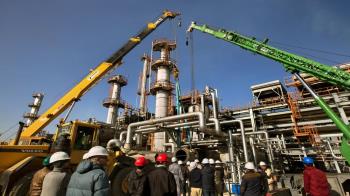
Analysis
Baghdad-Erbil Oil Exports Deal: From Home to Regional and International Geopolitical Impacts
Sunday 5 October 2025
،
Saddam Hussein's regime in 2003, Erbil began building its own energy infrastructure and started connecting oilfields to the Ceyhan pipeline via new links it constructed. This move allowed the semi-autonomous region to export oil largely independent of Baghdad.
This approach by the Kurds stirred ...

News
Shadow Man: What’s behind US Envoy’s Activism in Iraq?
Monday 10 November 2025
،
Saddam Hussein’s Baath regime, Sunnis enjoyed a privileged position, and many tribal leaders continue to blame Washington for their community’s current situation. Against this backdrop, Sawaya’s mission in Iraq is to rebuild Sunni trust and align them with US policies, a strategy a ...
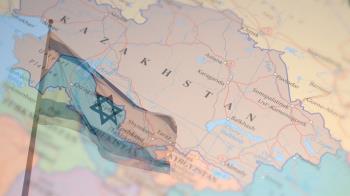
Analysis
Israel’s Creeping Influence in Central Asia a Threat to Iran’s Security Interests
Wednesday 12 November 2025
،
Saddam Hussein during the 1991 Persian Gulf War, Israel's past failures in engaging the Muslim world, and a general unfamiliarity with the region.
However, over time, these assumptions shifted. The primary catalyst for Israel's strategic reassessment was its confrontation with the Resistanc ...

Paper
What Does High Iraq Election Turnout Mean?
Wednesday 12 November 2025
،
Saddam Hussein, reflecting a decline in public trust in the political system and growing popular disillusionment with the effectiveness of successive governments.
Accordingly, this report will examine the main reasons for the increased participation, its political and social consequences, including ...
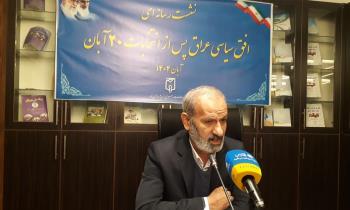
Report
Iraq Resistance Gained further Weight, US Failed Despite $2b Spending in Vote: Expert
Tuesday 18 November 2025
،
Saddam Hussein fell in 2003. These elections saw a rise in turnout rate after rounds of downward trend. The increase was reported 15 percent compared to the last election and it is expected that Iraqi election situation will influence the elections in other regional countries, and actually this incr ...










